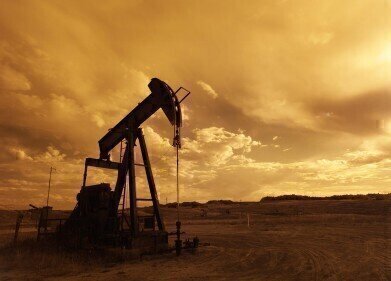Biodiesel
Are Biofuels Worse Than Fossil Fuels?
Oct 03 2014
Biofuels have long been touted as the environmentally friendly and sustainable alternative to fossil fuels. But are they as saintly as governments would have us believe? A 2013 report by think tank Chatham House suggests not. Its author, Rob Bailey, claims that biofuels are actually more expensive and much worse for the environment than fossil fuels.
But First … What Are Biofuels?
Biofuels are energy sources derived from living matter. These renewable fuels are most commonly produced from plant material - crops like rapeseed, soya and palm oil, and animal waste. However, new candidates are regularly found that could be cultivated for use in biodiesel, such as peaches, tobacco trees and even marine algae.
Biofuels can be used in transportation, as an alternative to conventional petrol and diesel, and in power and heat generation.
Biofuels vs. Fossil Fuels
Biofuels have never been perfect, but they were considered a healthier, cheaper source of energy. Their pros far outweighed the cons... Until the Chatham House report was published, that is. Now researchers, environmentalists and governments are faced with the very strong possibility that biofuels are as bad, if not worse, than fossil fuels.
So what exactly are the issues with biofuels?
The first and perhaps most surprising concern is that biofuels just aren’t as environmentally friendly as first believed. In fact, according to Bailey, they could be causing more problems than they solve. The increase in demand for biofuels has seen a great deal of EU land taken out of production to grow rapeseed. In addition, huge swathes of deforested land in countries such as Indonesia and Brazil are being used to produce palm oil. As a result, growing crops for biofuels is causing significantly high CO2 emissions - the one thing they were supposed to combat.
Deforestation is another major issue. Forests in Asia, Africa and South America are being flattened to make way for biofuel plantations. Estimates suggest that 40,000 hectares of tropical rainforest are being destroyed daily. This has the potential to become an environmental and social crisis, as millions of people are evicted from their homes. Deforestation is also disastrous for animals and plant life.
Indirectly, biofuels have also caused a worldwide food shortage and huge price increases, as land is being used to grow crops for fuel rather than food. A World Bank report claimed that in some areas, biofuels had increased food prices by 75%. In poorer countries this has led to riots and civil unrest.
Finally, biofuels are simply more expensive than fossil fuels. Rob Bailey’s reported warned that the use of biofuels could cost the UK an additional £460 million every year. And this price will only increase as the use of biofuels increase.
The Debate Continues
Biofuels do have their benefits and supporters. Isabelle Maurizi at The European Biodiesel Board claims that they have improved the security of diesel and reduced EU dependency on animal feed imports. But are the positives enough to outweigh the negatives? The debate continues and we will be watching with interest to see the outcome.
Digital Edition
PIN 25.5 Oct/Nov 2024
November 2024
Analytical Instrumentation - Picturing Viscosity – How Can a Viscometer or a Rheometer Benefit You? - Sustainable Grease Formulations: Evaluating Key Performance Parameters and Testing Method...
View all digital editions
Events
Nov 26 2024 Paris, France
Nov 26 2024 Amsterdam, Netherlands
Nov 27 2024 Istanbul, Turkey
Biogas Convention & Trade Fair 2024
Nov 27 2024 Hanover, Germany
Dec 03 2024 Dusseldorf, Germany



















